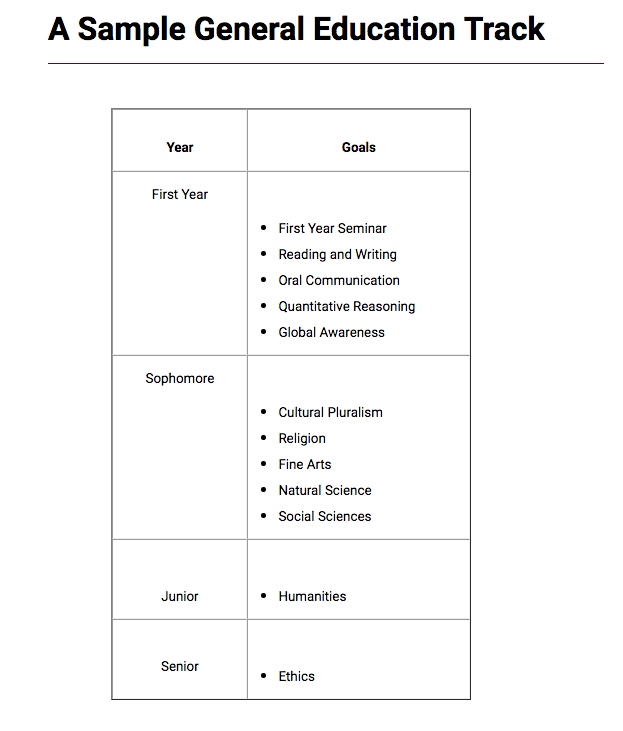With scheduling for the fall semester on the horizon, students are likely beginning to plan their next step toward earning their degree; and regardless of major, every Capital student must incorporate a number of university core (UC) courses into their plan.
While fulfilling the requirements may seem like simply checking off boxes, the purpose of the general education (Gen Ed) curriculum lies beyond imparting basic college skills.
According to the university’s undergraduate bulletin, the Gen Ed curriculum is rooted in Capital’s Lutheran heritage, and it is closely related to the university’s mission statement of “transforming lives through higher education.”
In practice, the Gen Ed curriculum is divided into twelve learning goals to be completed during a student’s four years.
While there is fluidity, certain courses are designed to be taken during each year. This is denoted by the course number, for example UC 120 (oral communication) is a first-year course, while UC 200 (cultural pluralism in American society) is a sophomore course.
The majority of the Gen Ed goals are meant to be completed during a student’s first two years, with the exception of the humanities (UC 310/311), and ethics (UC 410).
Many of the Gen Ed goals may also be filled with cognate courses. For instance, the religion requirement can be filled by RELIG 190 (introduction to religion) instead of UC 220 (religious foundations and the Bible), or global awareness, which has over ten cognates in various departments.
Students are often unaware of available cognates however, as they are not listed under the UC subject on webadvisor. For example, when searching for RELIG 190 for the religion cognate, students need to select RELIG when searching for and scheduling classes.

Additionally, certain courses in a student’s major may count towards one or more of their Gen Ed requirements.
A full accounting of courses that fulfill the general education requirements, including cognates, can be found on the university’s online course bulletin under the general education tab.
However, upperclassmen should be aware that this is the current course bulletin, and not necessarily their own. To limit confusion, students should cross reference it with the academic year listed on their program evaluation.
For example, the current bulletin includes the first-year seminar course which was introduced in the 2014-2015 academic year, to give incoming students a strong foundation in critical thinking and prepare them for any discipline.
Capital and other Ohio universities are subject to a state mandated minimum number of Gen Ed hours, and it is only their implementation that differs.
When compared to other local universities, such as Otterbein and Denison, Capital’s Gen Ed curriculum is fairly similar. They also have a series of core requirements every student must take, and each requirement can be filled by a number courses.
However, at more traditional liberal arts universities, such as the College of Wooster, the general education curriculum is more heavily integrated into each major, and the distinction between the two is more nuanced.
In any case the Gen Ed curriculum is here to stay, and students with questions should consult their academic advisers.
Schedules for the fall semester will be available on webadvisor, Monday, Mar. 21, with individual registration to occur, by class status, the week of Apr. 4.

